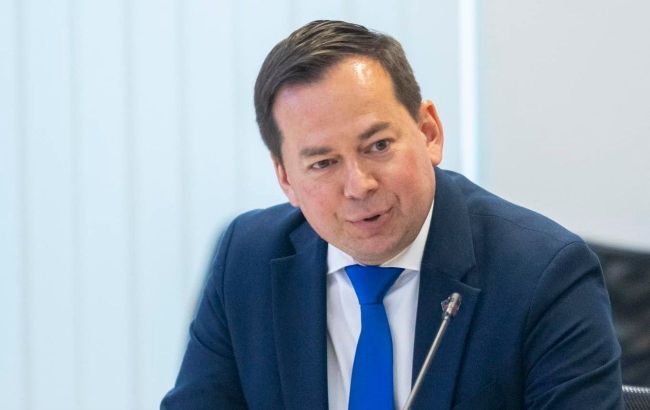Lithuania hints Hungary EU exit
 Photo: Hungary was hinted at leaving the European Union in Lithuania (facebook.com/arnoldas.pranckevicius)
Photo: Hungary was hinted at leaving the European Union in Lithuania (facebook.com/arnoldas.pranckevicius)
Hungary should leave the European Union if it is not willing to support solidarity and mutual trust with other bloc members, states Lithuania's permanent representative to the European Union, Arnoldas Pranckevičius on his Facebook page.
As noted by Lithuania's representative to the EU, all leaders of the bloc welcomed the results of the latest summit, except for Hungarian Prime Minister Viktor Orban, who praised his "achievements" regarding the "veto on additional funds for Ukraine and the MFF review."
"I sincerely wish this member state (Hungary) never experiences the war that the people of Ukraine are currently enduring—so that its cities are not bombed, and its citizens do not perish. May its territories never be occupied by an aggressor state. I wish it never has to ask for solidarity from others and never feels the veto of allies on crucial assistance in times of greatest need. The EU is strong thanks to solidarity and mutual trust. If you are not ready to share in any of this, there is only one right decision: to leave," said Pranckevičius.
Hungary's position on Ukraine's EU accession
Earlier, Hungary threatened to block all negotiations related to Ukraine's EU accession. In light of this, President Volodymyr Zelenskyy was able to speak with Orban during a visit to Argentina just before the EU leaders' summit. According to him, the conversation was frank and concerned European affairs of the two countries.
During the summit, the Euro Summit decided to open negotiations on Ukraine's accession.
€50 billion for Ukraine
Earlier, the European Commission proposed providing financial assistance of €50 billion to Ukraine by 2027. On December 14, EU leaders discussed this initiative at the Brussels summit; however, on December 15, Hungary vetoed the decision, despite the support of the other 26 bloc members.
Hungarian Prime Minister Viktor Orban stated that he would not approve such a decision until the bloc pays all the funds earmarked for his country, which were frozen.

